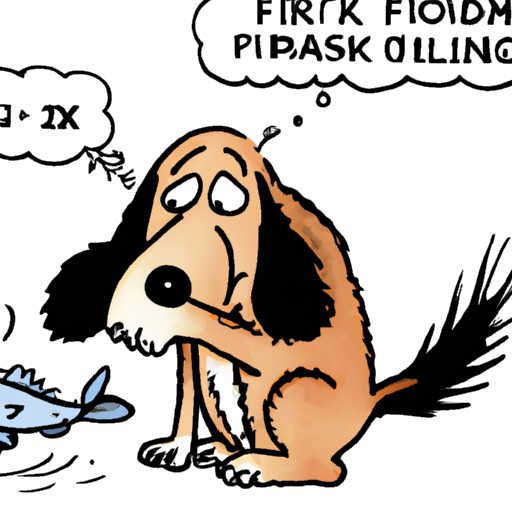1. Introduction: Understanding Your Canine Friend’s Unique Scent
Firstly, let’s set the record straight. You’re not alone. Many dog owners have found themselves asking the same question: “why does my dog’s butt smell like fish?” It’s not the most pleasant topic, but it’s an important one. Understanding the reason for this peculiar scent can be crucial to ensuring the health and well-being of your beloved four-legged friend.
2. Anal Glands: The Underlying Culprit
Your dog’s fishy smell likely originates from their anal glands. These two small, pea-sized sacs are located on either side of your dog’s anus. They secrete a unique, often pungent, liquid that your dog uses to mark their territory and communicate with other dogs.
| Anal Gland Characteristics | Description |
|---|---|
| Location | On either side of the anus |
| Size | Pea-sized |
| Function | Mark territory and communicate |
3. Anal Gland Issues: When Things Go Wrong
Sometimes, these glands can become impacted or infected, leading to an unpleasant, fishy smell. This can happen if the glands don’t empty properly during defecation or if your dog is suffering from allergies or digestive issues.
- Impacted Anal Glands: The glands are unable to empty, leading to discomfort and a potent smell.
- Infected Anal Glands: The glands become infected, causing pain, swelling, and a strong odor.
4. How to Address the Issue: Practical Steps
Luckily, there are several steps you can take to address this issue:
- Regular Grooming: Regular bathing can help control the fishy smell. Use a dog-approved shampoo to prevent skin irritation.
- Diet Change: A high-fiber diet can help your dog’s glands empty more regularly.
- Veterinary Care: If the problem persists, a vet can manually express the glands or treat any underlying infection.
5. Prevention: Keeping the Fishy Smell at Bay
Preventing anal gland issues in the first place is the best way to keep your dog smelling fresh. Regular exercise, a balanced diet, and regular vet check-ups can go a long way.
- Regular Exercise: Helps with overall health and regular bowel movements.
- Balanced Diet: A diet rich in fiber can help keep the glands healthy.
- Veterinary Check-ups: Regular vet visits can catch any potential issues early.
FAQ
- Can I express the glands myself?
- Yes, but it’s recommended to have a vet show you the proper technique first.
- Will changing my dog’s food really help?
- Yes, a high-fiber diet can help the glands empty more regularly.
- Should I be worried if my dog’s butt smells like fish?
- If the smell is persistent, it could indicate an underlying issue that needs veterinary attention.
Remember, as a caregiver, your goal is not just to eliminate the unpleasant odor but to ensure your dog’s well-being. If you are ever in doubt, a trip to the vet is always a good idea.



